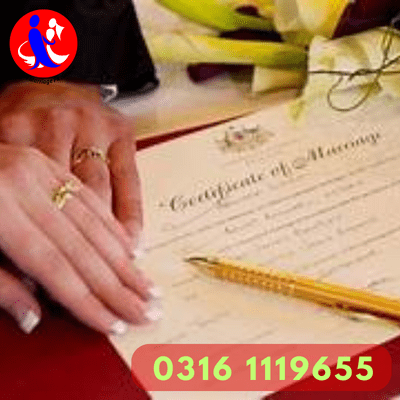Conditional Nikah | Conditional Nikah Service In Pakistan | How Conditional Nikah Work
Conditional Nikah with a Distinctive Lens at Courtmarriagepk.online
Welcome to our conditional nikah! If you’re seeking a comprehensive understanding of this unique concept in Islamic marriage For Conditional Nikah, you’ve come to the right place: At Courtmarriagepk.online. Marriage is a sacred bond that brings two individuals together, but sometimes, certain conditions must be met before entering into this lifelong commitment. Whether financial security, career aspirations, or other personal factors influence your decision, conditional nikah offers flexibility while adhering to Islamic principles.
Why Choose Us for Your Conditional Nikah?
- Expertise and Dedication: Our team is well-versed in Islamic marriage’s intricacies, with years of experience conducting Conditional Nikah ceremonies. We approach each ceremony with dedication and a deep understanding of its significance.
- Cultural Inclusivity: We respect and celebrate the diverse cultural backgrounds of our clients. Whether you follow traditional customs or have specific cultural preferences, we can tailor the ceremony to incorporate and honor your cultural heritage.
- Legal Knowledge: We guide the legal aspects of Conditional Nikah, ensuring that all legal requirements are met. Our knowledge of marriage’s legal implications helps you confidently navigate this critical step.
- Professional Network: We have established connections with reputable witnesses, scholars, and professionals well-versed in Islamic marriage customs. This network enhances the quality and authenticity of your Conditional Nikah ceremony.
- Client Satisfaction: Our record of satisfied clients demonstrates our commitment to delivering exceptional service. We take pride in helping couples begin their marital journey on the right path.
- Support Throughout the Process: We don’t just assist during the ceremony; we guide you through the entire Conditional Nikah process. We provide comprehensive support, from the initial paperwork to any post-ceremony legal matters
Understanding Conditional Nikah
Conditional Nikah, also known as “Nikah al-Shart” in Islamic terminology, is a unique aspect of Islamic marriage involving specific conditions in the marriage contract. Conditional Nikah conditions can play a significant role in shaping the dynamics of the marriage and are subject to the consent of both parties involved. These conditions may relate to various aspects such as financial matters, living arrangements, or even divorce. Understanding Conditional Nikah requires delving into its core principles and exploring how it functions within Muslim marriages. By incorporating certain conditions into the Conditional Nikah contract, couples can establish parameters for their relationship based on mutual understanding and agreement. This allows individuals to tailor their marriage to their unique needs while abiding by Islamic guidelines.

The Concept of Conditional Nikah in Islamic Marriage
The concept of conditional Nikah in Islamic marriage is an intriguing aspect that adds depth and flexibility to the union. In this type of Nikah, certain conditions are agreed upon by the parties involved before entering into the marital contract. These conditions can vary from financial arrangements to lifestyle preferences. Conditional Nikah provides a platform for couples to establish mutual agreements and understandings, ensuring that their expectations are met within the boundaries of Islam. It gives individuals a clearer vision of their future and enables them to align their goals accordingly. The beauty of conditional Nikah lies in its ability to cater to each couple’s specific needs and circumstances, fostering a sense of harmony and understanding in their relationship.
What Is a Conditional Nikah and How Does It Work?
A conditional nikah is a marriage contract that includes specific conditions agreed upon by both parties. These conditions can range from financial agreements to lifestyle preferences. The purpose of Conditional Nikah is to ensure both individuals enter the marriage with clear expectations and understanding. Once the conditions are met, the marriage becomes valid according to Islamic law. In a conditional nikah, the couple must fulfill the conditions for the wedding to be complete. For example, suppose one condition is for the husband to provide a certain amount of mehr within a specified time frame. In that case, he must fulfill this obligation before the marriage becomes official. This ensures that both parties have fulfilled their responsibilities before committing fully to each other in matrimony for Conditional Nikah.



The Importance of Intentions in Conditional Nikah
The importance of intentions in conditional nikah must be balanced. The intention behind entering into a marital contract is significant in Islamic marriage. It is not simply a legal formality but a profoundly spiritual commitment that should be made with sincerity and purity of heart. When entering into a conditional nikah, both parties must have clear intentions and understand the implications of their commitment. The intention to fulfill the conditions outlined in the marriage agreement is essential for the validity and success of the union for Conditional Nikah. With genuine intentions, the purpose and sanctity of marriage can be protected. Intentions shape our actions and pave the way for blessings in our relationships. Couples can establish a strong foundation of trust, love, and mutual respect by approaching conditional nikah with pure intentions. This mindset sets the stage for a fulfilling and harmonious partnership that will withstand challenges along life’s journey.
Types of Conditions in Nikah: Explained
When it comes to conditional nikah, various types of conditions can be included in the marriage contract. These conditions serve as guidelines and agreements between the couple, ensuring that certain expectations or requirements are met throughout their married life. One type of condition is a financial condition for Conditional Nikah, where specific financial obligations or responsibilities are outlined. For example, the husband may agree to provide his wife with mehr or maintenance. Another type of Conditional Nikah is a lifestyle condition, which may include agreements on how the couple will lead their lives together – such as decisions about living arrangements or career choices. These conditions play an essential role in shaping the dynamics of the marriage and maintaining harmony between both partners. Conditional Nikah allows individuals to express their concerns and needs while establishing mutual understanding and expectations within the relationship. By clearly defining these conditions during nikah, couples can better navigate potential conflicts and ensure a strong foundation for their marriage.
Conditional Nikah vs. Traditional Nikah: Key Differences
Regarding marriage in Islam for Conditional Nikah, individuals can choose from different types of nikaah. One significant distinction is between traditional nikah and conditional nikah. Traditional nikah involves a straightforward agreement between the bride and groom, with no specific conditions attached. On the other hand, conditional nikah allows couples to include certain conditions within their marriage contract, which need to be fulfilled for the marriage to continue. These fundamental differences between traditional and conditional nikah give couples more flexibility and control over their marital arrangements, allowing them to tailor their union to specific circumstances or needs. It ensures that both parties clearly understand what is expected from each other for the marriage to proceed successfully.
The Role of Witnesses in a Conditional Nikah Ceremony
The role of witnesses in a conditional Nikah ceremony holds immense significance. These individuals play a crucial part in ensuring the validity and authenticity of the marriage contract. In Islamic tradition, having at least Three witnesses present during the Nikah ceremony who can testify to the agreement between both parties is essential.
Witnesses serve as impartial observers, attesting that both parties willingly entered into the marriage contract and agreed upon any conditions set forth. Their presence adds an element of accountability and ensures transparency in the process for Conditional Nikah. The witnesses not only validate the legality of the marriage but also act as guardians of its integrity, safeguarding against any potential disputes or misunderstandings in future proceedings. By having witnesses present during a conditional Nikah ceremony, couples can rest assured that their union is legally binding and recognized within Islamic law.
Conditional Nikah in Contemporary Muslim Marriages
In contemporary Muslim marriages, conditional nikah has gained significant attention and relevance. This form of marriage allows couples to include specific conditions within their nikah contract, providing a sense of security and flexibility. These conditions for Conditional Nikah can range from financial agreements to lifestyle choices, ensuring both parties can express their needs and expectations. With the changing dynamics of modern relationships, conditional nikah has become an effective way for couples to navigate the complexities of marriage. This approach acknowledges that individuals have unique circumstances and preferences, fostering a greater understanding and compromise within the union. By embracing conditional nikah in contemporary Muslim marriages, couples can create a foundation based on mutual respect and compatibility while addressing individual needs without compromising Islamic principles for Conditional Nikah.

Legal Aspects of Conditional Nikah In Pakistan
In Pakistan, the legal aspects of conditional nikah hold great significance. Both parties must understand the terms and conditions when entering a marriage contract. The conditions must be in accordance with Islamic principles and adhere to the laws of the country.
The validity of a conditional nikah depends on various factors such as consent, witnesses, and adherence to legal requirements. It is crucial for couples considering this type of marriage to consult legal experts who specialize in Islamic family law to ensure that their marriage is legally recognized and protected under Pakistani law.
The Significance of Consent in Conditional Nikah
Conditional nikah, one of the critical elements that cannot be overlooked, is the significance of consent. Consent is vital in any marriage, which also holds for conditional nikah. It is essential for both parties involved to give their informed and voluntary consent before entering into this type of marriage. In a conditional nikah, consent ensures that both individuals fully understand and agree to the conditions outlined in the marriage contract. This includes being aware of any specific terms or requirements that must be met for the marriage to continue or be dissolved. Without mutual consent, a conditional nikah would not hold its validity as it goes against the principles of Islamic law, which emphasize free will and choice in matters relating to marriage.
Conditional Nikah: Common Misconceptions and Myths In Pakistan
There are several misconceptions and myths surrounding conditional nikah in Pakistan. One common misconception is that it is a temporary marriage or allows multiple wives. However, this is not true. Conditional nikah is a valid Islamic marriage contract that can only be dissolved through divorce. Another myth is that conditional nikah undermines the rights of women. This is not accurate either. The concept of consent plays a crucial role in conditional nikah, ensuring that both parties enter into the marriage willingly and with a full understanding of their obligations.
It’s important to dispel these misconceptions and educate people about the true nature of conditional nikah to promote better understanding and acceptance within society.
Preparing for a Conditional Nikah: Step-by-Step Guide
When preparing for a conditional nikah, several necessary steps must be considered. First, you must discuss the conditions with your partner and ensure that both parties agree. This may involve open communication and negotiation to reach a mutual understanding.
Next, it’s essential to consult with an Islamic scholar or qualified religious authority for Conditional Nikah, who can guide you through the process. They will advise Conditional Nikah on properly drafting the contractual agreement and ensuring it aligns with Islamic principles. Once the conditions are finalized for Conditional Nikah, it’s time to gather all necessary documents and paperwork. This includes identification cards, proof of age, witnesses’ details, and other required documentation per local laws. On the day of the ceremony, ensure everything is well-prepared, including arranging suitable witnesses who understand their role in validating the contract.
Conditional Nikah and Marriage Contracts: What to Include
When it comes to conditional nikah and marriage contracts, certain vital elements should be included. First and foremost, the conditions of the marriage must be clearly stated in the contract. This can have anything from financial obligations to specific lifestyle choices. Additionally, it is crucial to outline the consequences or penalties for not fulfilling these conditions. By including these details in the marriage contract, both parties clearly understand their responsibilities and what will happen if those responsibilities are not met. This ensures transparency and helps prevent any misunderstandings or disputes in the future.

Conditional Nikah: Its Impact on Future Divorce Proceedings
Regarding conditional nikah, its impact on future divorce proceedings should be considered. The presence of conditions within a marriage contract adds a layer of complexity and potential complications in case of a divorce. If a couple decides to dissolve their marriage through divorce, the conditions set during their nikah could significantly affect the division of assets, custody arrangements, and other legal aspects. It is crucial for both parties to carefully consider and negotiate these conditions before entering into a conditional nikah to avoid any misunderstandings or disputes later on. By understanding how conditional nikah can impact future divorce proceedings, couples can make informed decisions about their marital contracts and take necessary steps to protect their interests if things don’t work out as planned.
Challenges in Conditional Nikah Agreements
Navigating the world of conditional nikah agreements can present its fair share of challenges. One major hurdle is ensuring that both parties fully understand and agree to the conditions outlined in the agreement. Miscommunication or misunderstandings regarding these conditions can lead to confusion and potential conflict. Furthermore, enforcing a conditional nikah agreement can be difficult if one party decides not to uphold their end of the bargain. In such cases, seeking legal recourse may be necessary, adding complexity and potential stress to the situation. It is crucial for couples entering into a conditional nikah agreement to carefully consider these challenges and seek professional guidance, if needed, to protect their rights and ensure a smooth process throughout their marriage journey.
Frequently Asked Questions (FAQs)
- Can a conditional nikah be done without the knowledge of the bride or groom?
No, a conditional nikah cannot be conducted without the knowledge and consent of both parties involved. Both individuals must understand and agree upon the conditions outlined in the marriage contract.
2. Are there any limitations on the conditions that can be included in a Conditional nikah contract?
General guidelines regarding what can be considered valid conditions ultimately depend on local laws and cultural norms for Conditional Nikah. However, ensuring that these conditions do not violate Islamic principles or go against ethical standards is crucial.
3. What happens if one party fails to fulfill their condition after entering a conditional nikah?
If either party fails to fulfill their agreed-upon condition, it may lead to legal consequences or potentially even dissolution of the marriage, depending on local laws and circumstances.
4. Is divorce more complicated in cases of conditional nikah compared to traditional marriages?
Divorce proceedings can become more complex when dealing with a conditional nikah due to the additional factors involved, such as determining whether conditions were met or understanding how they impact future decisions related to separation.
5. Are witnesses required for a valid conditional nikah ceremony?
Yes, witnesses during the ceremony are necessary for validating a conditional nikah under Islamic law.
6. How does one prepare for a successful conditional nikah?
To ensure the smooth execution of your conditioned nikah, Communicate openly with your partner, Consult with a religious authority, Draft a clear marriage contract, and Fulfill legal requirements. And Secure reliable witnesses for Conditional Nikah.
